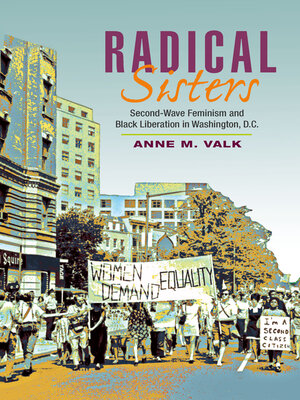Radical Sisters
ebook ∣ Second-Wave Feminism and Black Liberation in Washington, D.C. · Women, Gender, and Sexuality in American History
By Anne M. Valk

Sign up to save your library
With an OverDrive account, you can save your favorite libraries for at-a-glance information about availability. Find out more about OverDrive accounts.
Find this title in Libby, the library reading app by OverDrive.



Search for a digital library with this title
Title found at these libraries:
| Library Name | Distance |
|---|---|
| Loading... |
Radical Sisters offers a fresh exploration of the ways that 1960s political movements shaped local, grassroots feminism in Washington, D.C. Rejecting notions of a universal sisterhood, Anne M. Valk argues that activists periodically worked to bridge differences for the sake of alleviating women's plight, even while maintaining distinct political bases. While most historiography on the subject tends to portray the feminist movement as deeply divided over issues of race, Valk presents a more nuanced account, showing feminists of various backgrounds both coming together to promote a notion of "sisterhood" and being deeply divided along the lines of class, race, and sexuality.|
Cover
Title
Copyright
Contents
Acknowledgments
List of Abbreviations
Introduction
Illustrations
1. Mobilizing for Political and Economic Rights
2. Defining Welfare Rights
3. Washington Women's Liberation Movement
4. Organizing for Reproductive Control
5. Women and Black Liberation
6. Lesbian Feminism and Separatism
7. Coalition Building against Sexual Violence
Conclusion
Notes
Bibliography
Index
Back cover
|
Winner of the Richard L. Wentworth Prize in American History, 2009.
— Richard L. Wentworth Prize in American History
|Anne M. Valk is a professor of history at the Graduate Center, City University of New York, and Executive Director of the American Social History Project/Center for Media and Learning.
|Anne M. Valk is a professor of history at the Graduate Center, City University of New York, and Executive Director of the American Social History Project/Center for Media and Learning.







